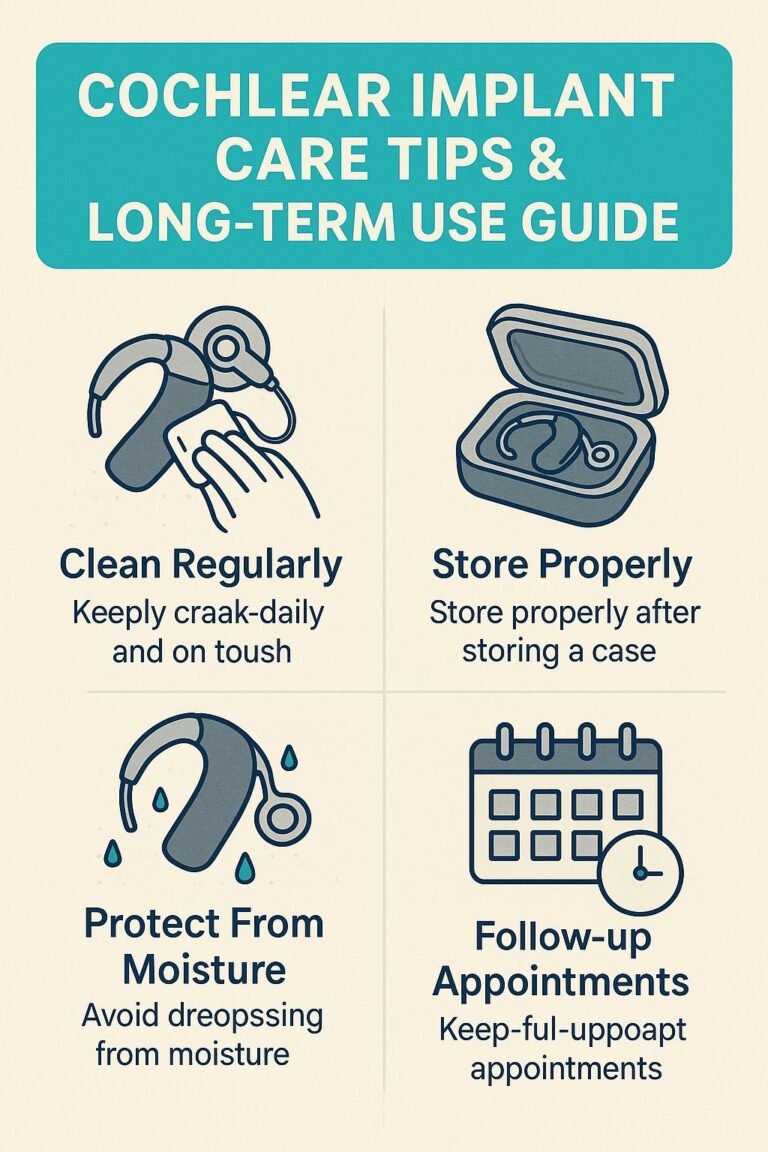Important Points
- Our gut microbiome is home to trillions of microorganisms that are vital to digestion, immunity, and our overall health.
- Recent studies conducted in 2024 have emphasized the role of the microbiome in chronic diseases such as obesity, diabetes, and mental health disorders.
- Our diet and lifestyle have a significant effect on the composition and health of our gut microbiome.
- By understanding and maintaining a balanced gut microbiome, we can improve our digestive health and potentially prevent certain diseases.
- Future studies may lead to personalized medicine approaches based on individual microbiome profiles.
Microbiome & Gut Health Research, Studies & Discoveries
The gut microbiome is a large and complex community of microorganisms that live in our intestines. These tiny inhabitants, including bacteria, viruses, fungi, and other microbes, collectively weigh about as much as your brain. They are not just passive passengers; they are active participants in your health. Understanding their roles can help you make better choices for your gut health.
Picture your gut microbiome as a busy metropolis. Every microbe plays a role, adding to the total health of the metropolis—your body. They assist in the digestion of food, the production of vital vitamins, and the protection against dangerous pathogens. Above all, they interact with your immune system, affecting how your body responds to illnesses.
Understanding the Gut Microbiome
Let’s delve deeper into the gut microbiome to understand its significance. The gut microbiome is a complex ecosystem in your large intestine, populated by trillions of microorganisms. It’s a vibrant place where these microbes interact with each other and with your body, impacting your health in numerous ways. For instance, understanding the gut microbiome can be essential for managing long COVID symptoms and improving overall recovery.
These microorganisms are incredibly varied. There are actually more bacterial cells in your gut than there are human cells in your entire body. This variety is important because it means that your microbiome can adjust to changes in diet, environment, and health. A varied microbiome is often linked to resilience and better health.
Moreover, the microbiome serves as a training camp for your immune system. It teaches your body to differentiate between harmful intruders and harmless substances. Hence, preserving a healthy balance of gut microbes is crucial for a robust immune system.
2024’s Essential Discoveries in Gut Health
Researchers broke new ground in gut health in 2024, potentially changing our understanding of wellness and disease prevention. Studies have indicated that certain gut bacteria strains are associated with better mental health results, underlining the significance of the gut-brain axis. This link implies that taking care of your gut health may also benefit your mental health.
In addition, research from Yale University highlighted notable discrepancies in the gut microbiomes of obese individuals versus those of a healthy weight. This evidence implies that gut bacteria may have an impact on metabolism and weight control. As a result, focusing on the microbiome could emerge as a method for addressing obesity and associated metabolic diseases.
How the Microbiome Relates to Chronic Illness
As research continues, the link between the gut microbiome and chronic illness is becoming more apparent. It has been discovered that an imbalance in the microbiome, also known as dysbiosis, can lead to a variety of health problems. This imbalance could be related to conditions such as inflammatory bowel disease (IBD), irritable bowel syndrome (IBS), and even heart disease.
- Obesity and Diabetes: Scientists have found a correlation between changes in gut bacteria and increased fat storage and insulin resistance, which are both risk factors for obesity and diabetes.
- Mental Health Disorders: The gut-brain axis shows that gut health can influence mood and mental health, potentially affecting conditions like depression and anxiety.
- Autoimmune Diseases: A disrupted microbiome may trigger immune responses that lead to autoimmune conditions such as rheumatoid arthritis.
By understanding these connections, we can take steps to support our gut health and potentially reduce the risk of chronic diseases. In the next section, we’ll look at how the microbiome affects digestive health and what you can do to promote a healthy gut.
More Than Just Digestion
It turns out that the gut microbiome does a lot more than just help you digest food. New studies have found that it plays a role in many other parts of the body, showing just how interconnected our health really is. By learning about these connections, you can take steps to improve your health as a whole. For instance, understanding the best acid reflux treatments can be a part of maintaining a healthy gut.
The Microbiome’s Connection to Mental Health
The gut-brain axis, a two-way communication system between the gut and the brain, is one of the most fascinating areas of research. Research has demonstrated that the microbiome can impact brain chemistry and behavior. Some gut bacteria, for instance, produce neurotransmitters like serotonin, which is essential for mood control.
There have been actual cases where changing the gut microbiome has resulted in better mental health results. For example, a clinical trial with people suffering from depression showed that using certain probiotics resulted in major improvements in their symptoms. This highlights the potential for gut health treatments to support mental health.
How the Microbiome Impacts the Immune System
Not only does the microbiome have a significant effect on mental health, but it also greatly influences the immune system. A well-balanced gut microbiome can assist the immune system in identifying dangerous pathogens and differentiating them from the body’s own cells. This can decrease the likelihood of autoimmune diseases, in which the immune system incorrectly attacks the body.
Primarily, keeping a balanced microbiome can improve your body’s capacity to ward off infections. For instance, people with a diverse and balanced gut microbiome generally bounce back quicker from sicknesses such as the common cold. This underscores the importance of fostering your gut health as a component of your immune-boosting approach.
Encouraging a Robust Microbiome
With a grasp on the importance of the gut microbiome, we can now delve into the ways you can encourage a robust gut environment. By making minor alterations to your lifestyle and diet, you can significantly enhance your gut health.
- Eat a diverse range of foods, especially fiber-rich fruits and vegetables.
- Include fermented foods like yogurt, kefir, and sauerkraut in your diet.
- Limit processed foods and added sugars, which can harm beneficial bacteria.
- Stay hydrated to support digestion and nutrient absorption.
- Exercise regularly to enhance gut motility and microbial diversity.
Incorporating these habits into your daily routine can foster a thriving gut microbiome, improving not just your digestive health but also your overall well-being.
Nutrition and Lifestyle Advice
For your diet, concentrate on diversity and equilibrium. Eating a diverse array of plant-based foods can offer the fiber and nutrients your gut bacteria require to thrive. Try to fill your plate with vibrant vegetables, whole grains, and legumes.
Also, think about adding fermented foods to your diet. These foods have live good bacteria that can improve your gut microbiome. Foods like kimchi, miso, and tempeh are examples. In addition, lowering stress through things like meditation and yoga can also help gut health by lowering inflammation and helping a balanced microbiome.
Getting to Know Probiotics and Prebiotics
Probiotics and prebiotics are key elements of a gut-healthy diet. Probiotics are helpful live bacteria that are present in certain foods and supplements. They can help reestablish balance in your gut microbiome, particularly after taking antibiotics or having digestive problems.
Prebiotics, alternatively, are fibers that can’t be digested and nourish the beneficial bacteria in your gut. Garlic, onions, and bananas are all great sources of prebiotics. By incorporating both probiotics and prebiotics into your diet, you can create a synergistic effect that fosters ideal gut health.
The human microbiome plays a crucial role in maintaining gut health, influencing everything from digestion to immune function. Recent studies have shown that a diverse microbiome can help prevent conditions such as acid reflux. If you’re looking for effective ways to manage this condition, consider exploring acid reflux treatments and remedies that support gut health.
By learning about these elements and making smart food choices, you can take steps to improve your gut health and overall wellness.
What’s Next in Gut Health Research
Research in gut health is quickly changing, and there are some thrilling advancements coming soon. Scientists are looking into how to use the microbiome for personalized medical treatments and targeted therapies.
New Research Directions
One of the most exciting new areas of research is the potential for treatments based on the microbiome for chronic diseases. Scientists are studying how changes in the microbiome could affect conditions such as obesity, diabetes, and even cancer. This could result in new treatments that go after the underlying causes of these diseases.
Additionally, technological progress is allowing scientists to investigate the microbiome with unparalleled precision. This includes examining the genetic composition of gut bacteria and comprehending how they communicate with the human body. As our understanding grows, so does the possibility for revolutionary findings that could transform healthcare.
What This Means for Customized Healthcare
Personalized medicine is becoming the new norm in healthcare, and the gut microbiome is leading the charge. By studying a person’s microbiome, physicians can customize treatments and diet plans to match the patient’s specific needs. This method could result in more successful treatments and better health results.
For example, a person whose microbiome profile is associated with higher levels of inflammation could benefit from certain probiotics or dietary changes aimed at reducing inflammation. In the same vein, people who are at risk for certain chronic diseases could be given therapies specifically designed to correct their unique microbiome imbalances. As research continues to evolve, personalized medicine will likely become the norm, giving people the power to manage their health in ways that have never been seen before.
Commonly Asked Questions
Trying to wrap your head around the gut microbiome and how it affects health can be a bit tricky. Here are some frequently asked questions to help clarify this interesting subject.
What is the gut microbiome?
The gut microbiome is the term used to describe the billions of bacteria, viruses, fungi, and other microbes that live in our intestines. These tiny creatures are essential for digestion, immune function, and general health. They assist in breaking down food, creating necessary vitamins, and defending against harmful pathogens.
What are some natural ways to boost my gut health?
Boosting your gut health naturally can be as simple as making a few lifestyle and dietary adjustments. Here are some suggestions to help you get started:
- Consume a variety of foods rich in fiber, including fruits, vegetables, and whole grains.
- Include fermented foods such as yogurt, kimchi, and sauerkraut in your meal plan.
- Keep your body hydrated by drinking enough water throughout the day.
- Engage in regular physical activity to enhance gut motility and microbial diversity.
- Manage stress by doing activities like meditation, yoga, or deep breathing exercises.
By adhering to these guidelines, you can maintain a healthy and balanced gut microbiome, which can result in better digestion and overall health.
Is it risky to change your microbiome?
While taking care of your gut microbiome can provide many benefits, it’s crucial to be careful when making changes. Changing your microbiome through extreme changes in diet or excessive use of probiotics can sometimes cause imbalances or side effects that you didn’t anticipate.
For instance, excessive use of antibiotics can upset the equilibrium of gut bacteria, resulting in problems such as antibiotic-related diarrhea or yeast infections. Likewise, consuming large quantities of probiotics without appropriate advice may lead to digestive upset or imbalances. For more insights, explore the latest research into gut bacteria.
That’s why it’s so important to make educated choices and speak with medical professionals when you’re thinking about making big changes to your gut health routine. They can give you advice that’s tailored to your specific health needs.
How does our gut microbiome evolve as we age?
The gut microbiome is a dynamic entity that changes throughout our lives. Factors like our diet, environment, and lifestyle all play a role in shaping it. As we age, these factors can influence the diversity and composition of our gut bacteria. Here’s a look at how the microbiome generally evolves over time:
- Infancy: The microbiome begins to form at birth, and its development can be influenced by factors like the method of delivery (vaginal vs. cesarean) and breastfeeding.
- Childhood: As children are exposed to new foods and environments, the diversity of their microbiome increases.
- Adulthood: While a diverse and stable microbiome is usually established, it can still be influenced by diet and lifestyle.
- Aging: In older adults, there may be a decrease in microbial diversity, and some beneficial bacteria may decline, which could potentially impact health.
In order to support a healthy microbiome as you age, it’s important to maintain a balanced diet, stay active, and manage stress. These practices can help maintain microbial diversity and promote overall health.
To sum it up, the gut microbiome is a vital and ever-changing part of our health that affects many areas of our well-being. By learning about its function and taking steps to care for it, you can take control of your gut health and maybe even enhance your overall life quality.
Is my mood influenced by the microbiome?
Indeed, your mood and mental health can be greatly affected by the gut microbiome. This relationship is commonly known as the gut-brain axis, which emphasizes the communication channels between the gut and the brain. The microbiome can affect the production of neurotransmitters such as serotonin, which is crucial for mood regulation.
Studies suggest that an unbalanced microbiome could be associated with mood disorders like depression and anxiety. For instance, a research discovered that people suffering from depression often have different gut bacteria profiles compared to those who don’t have the disorder. By improving gut health through diet and lifestyle modifications, it may be possible to promote mental health.
Adding gut-healthy foods and habits to your daily life can make a big difference in your gut and mental health. Keep in mind, caring for your gut isn’t just about digestion—it’s about taking care of your entire being.










